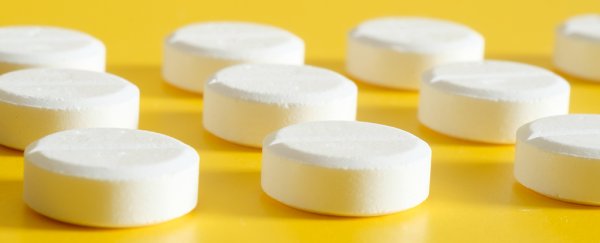Hydroxochloroquine is a slightly less toxic derivative of the synthetic compound chloroquine, which was developed in 1934 to prevent and treat malaria.
Also known as chloroquine phosphate, the drug stops the Plasmodium parasite from growing and reproducing while it's inside a host's red blood cells by interfering with the pathogen's ability to break down haemoglobin for food. Hydroxochloroquine is used in the treatment of rheumatic diseases like lupus.
Chloroquine is considered by the World Health Organisation to be an 'essential medicine' in the control of malaria around the globe, though half a century ago resistant strains of one of the most deadly of malarial parasites was discovered, limiting its use.
While chloroquine pills remain critical in managing disease thanks to its ease of delivery and transport, it is easily absorbed into the body and highly toxic in relatively small doses, meaning it needs to be used with caution.
Not only are there numerous side effects – ranging from headaches and stomach pain to drowsiness and vomiting – chloroquine poisoning carries a high risk of death, with cases of ingesting little more than just a few grams having potentially fatal outcomes.
Can chloroquine treat coronavirus infections?
Past research on chloroquine's (and hydroxochloriquine's) effects on certain viruses suggests the active compound can interfere with an ability to release and copy their RNA.
This makes it a potentially useful medication scientists are investigating in the treatment and prevention of some viral diseases, such as zika and COVID-19.
But due to high toxicity, a great deal of additional research is needed before the drug or its derivative can be prescribed for any viral condition. Medical researchers also need to determine appropriate dosages and whether its benefits are matched by its risks and potential toxicity.
Trials have been hampered by predictions of health risks to volunteers, with smaller studies suggesting any potential benefits would be compromised by potentially deadly side effects.
Despite significant amounts of speculation about the drug's potential in limiting casualties of the COVID-19 pandemic, it is not recommended at this time that chloroquine be used to treat or prevent COVID-19.
All topic-based articles are determined by fact checkers to be correct and relevant at the time of publishing. Text and images may be altered, removed, or added to as an editorial decision to keep information current.
